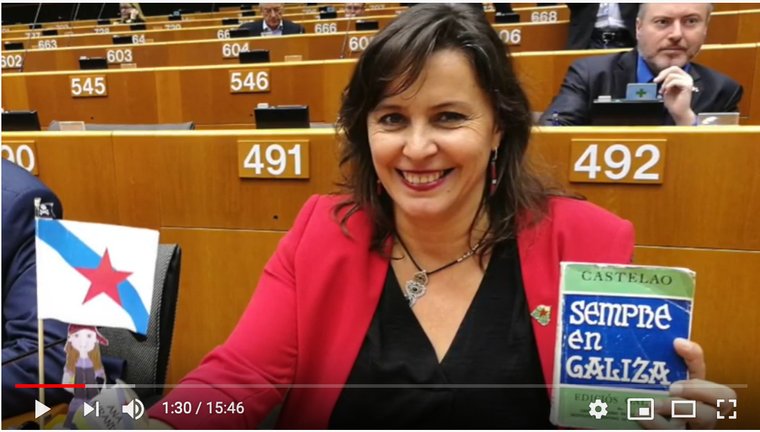
Galicia: Spain’s forgotten stateless nation
What do the Galicians want? 47 people leave Galicia every day. But they won an MP in the November election, who can tell us. Interview.

Spanish Prime Minister Pedro Sánchez is in a hurry; he wants a government by the New Year.
The 10 November election once again saw Sánchez’ centre-left PSOE become the largest party, but significantly short of a majority. They quickly elicited the support of the left-wing Podemos, but it still leaves them 21 short of a majority.
So Sanchez has had to turn to the nationalist parties, with his party holding a series of meetings with Catalan and Basque parties to try to come to a compromise on thorny questions, the thorniest of all being whether their respective nations have the right to national self-determination.
But it’s not just the Catalans and Basques that PSOE has to woo. On Wednesday [18 December] they also held talks with the Galician Nationalist Bloc (BNG), which won an MP in the November election.
We’ve got a newsletter for everyone
Whatever you’re interested in, there’s a free openDemocracy newsletter for you.
The BNG are signatories of the 25 October Declaration of Llotja del Mar, a collective commitment by the nationalist forces within the Spanish state to defend self-determination and free political prisoners. And the umbrella front has its own demands of Sánchez, as Ana Miranda, European Parliament spokesperson for the BNG and former MEP, tells me.
“We don’t want to say ‘No’,” she says. “We want a progressive government in Spain because it is best for Galicia, but also for the workers and the poorest people in Spain, and we are also for that.
“However, we have an MP and we want a proper negotiation, because we have our own demands. If we don’t get what we want, we have to say: No.
“PSOE are receptive, because they need the votes.”
“There is an ignorance of the Galician movement”
What do the Galicians want? While this is a question regularly posed of the Basques and the Catalans, Miranda has grown used to Galicia, in north-western Spain, being the forgotten stateless nation.
“When I explain in Brussels to MEPs, I make clear: ‘I belong to the BNG, it is a Galician left movement.’
“Because we need to clarify all the time, as they say: ‘Ah, you are for Catalan independence’. Or they say: ‘Ah you are Basque, you are for terrorism’.
“We say: ‘No, we are in coalition with peaceful people and democratic people’, but we have to explain who we are. There is an ignorance of the Galician movement.”
Galicia was a kingdom in its own right in the Middle Ages, and the Galician language is more widely used than Catalan and Basque in their respective countries. It too suffered greatly under the rule of Spanish dictator Francisco Franco, who was born in Galicia, after the defeat of the republicans in the civil war.
“Galicia was the territory, after Andalucia, with the most repression in Spain. 80,000 people were killed during the civil war: local governors, politicians, journalists, artists…” Miranda explains.
Galicia’s story is a sad one in more ways than one. It is a nation of emigrants and exiles, with a combination of economic under-development and political repression creating one of the biggest diasporas of any nation, especially in Latin America, where people of Spanish descent are frequently termed ‘Gallegos’ due to the prevalence on the continent of those from Spain’s Atlantic coast.
“It was in Latin America that the most books in the Galician language were published between ’36 and ’75, not here in Galicia, because it was forbidden,” Miranda tells me. “The Galician diaspora is one million people, in a country with 2.7 million.”
To this day, young people continue to leave the country, exacerbating the problem of an ageing population. Since the Eurozone crisis, unemployment has spiralled and so has emigration, with the population currently at its lowest level since 2002. Maranda says 47 people leave every day.
‘Galicia is a very old nation, in many ways’
This is part of the picture of Galicia’s distinct national history, which shapes its contemporary politics.
First, Galicia’s weak industrial and urban development in the nineteenth and much of the twentieth century meant that the country remained poor and rural with clientelist social relations. By the start of the 1980s, nearly half of the Galician economy was still based on the agricultural sector, dominated by the ‘minifundios’ (small landholdings).
Therefore while the Basque Country and Catalonia were rapidly developing an urban proletariat and local bourgeoisie, a dynamic which fostered local centres of political power and a rebellious relationship with Madrid, Galicia was continuing to be asset-stripped by the central state for its abundant natural resources, especially in energy, and left to stagnate. “Castrated”, is Miranda’s term of choice.
Secondly, Galicia’s experience of the civil war was not one of sustained resistance, far from it. Galicia’s republicans were defeated weeks before the official declaration of the civil war and after only fifteen days of fighting. The result of this was to leave “deeper scars on Galicians than those left in the parts of Spain that resisted the initial fascist uprising,” according to historian John Thompson. The scars operate on the level of the national psyche, and in terms of the entrenchment of Francoism deeper into Galician society, making the repression greater and justice for victims harder.
The combination of economic under-development and strong political entrenchment of Francoism has generated a political legacy whereby the main party of the Spanish Right, the Popular Party (PP), has been the dominant force in Galician politics since the post-Franco ‘transition’. The PP has been in power five out of the last six terms of the Galician Parliament. Whereas the PP currently hold nine of 57 seats in the Basque Parliament, and four of 135 seats in the Catalan Parliament, they hold 41 of 75 seats in the Galician parliament.
When the statutes of autonomy for the ‘historic nationalities’ of the Basque Country, Catalonia and Galicia were introduced, it was the Galicians that got the weakest devolved institutions. And quickly one old figure emerged as dominant in the new Galician politics, that of the PP’s Manuel Fraga, a former Propaganda Minister under Franco.
Remarkably, Fraga managed to present himself as a democrat, winning four successive terms of office from 1989 to 2005. He cloaked himself in the Galician national identity and language, despite his role in its repression under the late dictator.
Remarkably, Fraga managed to present himself as a democrat, winning four successive terms of office from 1989 to 2005. He cloaked himself in the Galician national identity and language, despite his role in its repression under the late dictator.
“Galicia is a very old nation, in many ways,” Pilar Fernandez of Rosalia TV, a nationalist blog bridging Galician and Scottish movements, tells me. “In thought and feeling, very conservative. And that played well for Manuel Fraga.”
It is not hard to find ways in which the post-Franco Spanish state has been more continuity than rupture with systemic problems of centralisation which Galicia faced under the dictatorship. Miranda highlights the railways.
“Franco sought to exercise control by ensuring that rail infrastructure always went from the outer regions through Madrid, in the centre. There is no proper railway connection horizontally across the north of the Spanish state connecting Galicia to the Basque Country and Catalonia; always through Madrid. Franco knew that if the Basque, Catalan and Galician militants could connect they would have a problem.
“This infrastructure problem continues today. From Vigo [Galicia’s largest city] to Barcelona is 15 hours by train. From Vigo to Bilbao is 12 hours, on a nineteenth century train. It’s a scandal.”
‘Ana Pontón can be like a Galician Nicola Sturgeon!’
Hence why infrastructure demands are part of the BNG’s shopping list for supporting Sánchez in the Congress, a list that also includes the right to national self-determination. While this is the first time the umbrella movement has been in such a position, it’s not the BNG’s first taste of power.
In 1982, one year after the Galician statute of Autonomy was introduced, the BNG was formed, and has since then been the main thrust behind the nationalist movement in Galicia. In this sense as well Galician nationalism distinguishes itself from the Basque and Catalan movements, with the latter having parties of the left and the right, and support among the working class and wealthier sections. The BNG’s base is in the working class, especially the towns and villages, and is an umbrella movement specifically of the left.
The BNG’s base is in the working class, especially the towns and villages, and is an umbrella movement specifically of the left.
“The BNG is a really left movement in all the senses: feminism; ecology activism; anti-capitalism; the land movement; the trade unions; the LGBTI movement,” Miranda says. “Perhaps a useful comparison with BNG and Galicia is Sinn Fein and Ireland: a large diaspora and a poor country, but with a lot of natural resources and possibilities.”
BNG’s support peaked in 1997 when it won 25 per cent of the vote. From 2005 to 2009 it was part of a coalition with PSOE in in the Galician Government. A section of the BNG split off in 2012, and is now in an alliance with Podemos locally, dividing the left vote in the country.
Miranda is not shy about admitting that the split hurt the BNG, but believes that it is now moving forward under new leadership, with Ana Pontón taking over as the national spokesperson in 2016.
“I think we are learning a more human way to do politics, that is led by women,” Miranda says. “Ana Pontón here; me in Europe; and lots of female Mayors. I think we have a new generation.
“Ana is like Nicola Sturgeon; if she is in power she can be a Galician Nicola! She has a personality with a good ability to relate to people.”
Pilar Fernandez, who also plays a prominent activist role online in the Scottish independence movement, agrees that Pontón’s leadership is promising for the BNG, which she says has suffered from division.
“[Ponton] is very humble, very human, with a lot of empathy. She understands very well the problem they had before. If you don’t work together you will never get anything but frustration.
“I do think in Galicia we can learn from Scotland in that respect.”
But whereas opinion polls in Scotland and Catalonia show support for independence around about the 50 per cent mark and pro-independence parties regularly winning elections, Galicia’s political reality is somewhat different, as Miranda readily acknowledges.
“For independence you need the political confidence of the people,” she says. “And here we have only 10 per cent in favour of independence. We have had 25 per cent in favour in the 1990s.
“We want a Galician Republic, that is true - it is our aim. We are against the monarchy and we want the sovereignty of our resources; our energy, our land, our sea. But we accept that we want that only if the people want it. Our situation is not the same as in Catalonia.”
Galicia’s situation is unique to itself and distinct from all the others. It has its own dynamic, and deserves to be understood in its own right.
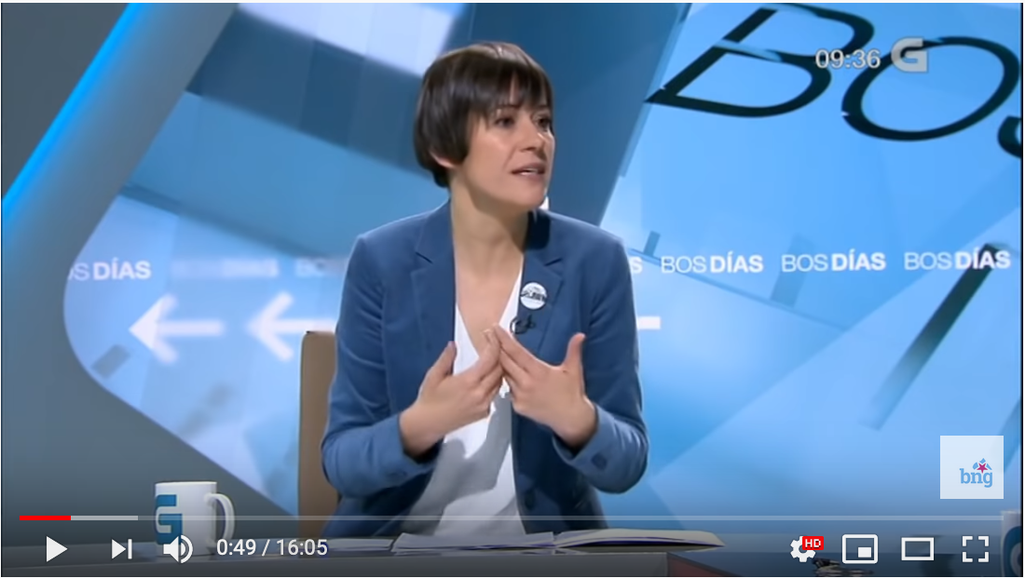
Read more
Get our weekly email
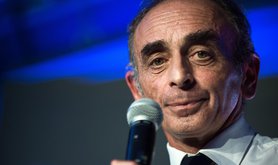
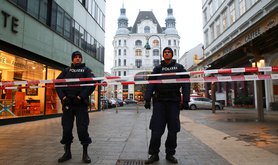
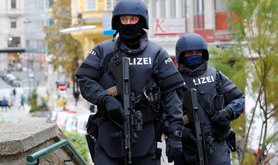
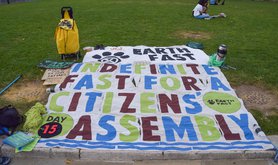
Comments
We encourage anyone to comment, please consult the oD commenting guidelines if you have any questions.